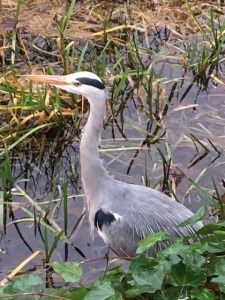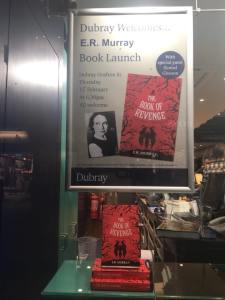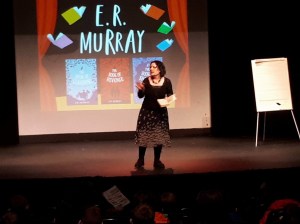 Happy 2018 to you all! At the start of a new year, people often feel energised and raring to go, so I’m starting the year with a few blog posts that will hopefully help to kickstart your writing, wherever you are on your writing journey. On the first day of the year, I’m starting right at the the beginning… because we all have to start somewhere.
Happy 2018 to you all! At the start of a new year, people often feel energised and raring to go, so I’m starting the year with a few blog posts that will hopefully help to kickstart your writing, wherever you are on your writing journey. On the first day of the year, I’m starting right at the the beginning… because we all have to start somewhere.
A first draft is exciting, but it can also be daunting. You have an idea and characters ready to burst onto the page, but at the same time, you have an intimidating blank screen glaring at you, daring you to fill it. So, how do you dive in and start getting those ideas down? How do you drag that first draft out of your head and heart and onto the page? Every writer is different, but this is what works for me…
It may seem obvious, but my advice is to just write. Write freely and manically and with abandon. Change character names if needed as you go, ignore the spelling mistakes, don’t edit a thing. Just write, write, write, until you have a decent body of words that can be shaped into a real story later along the line. Don’t worry about making mistakes – just go for it. Turn off that inner editor and inner critic, and make words.
I am now on my fifth book (an adult fiction, not contracted, title TBC) and so far, I have set myself the same goal every time I write a first draft. I aim for between 50,000 and 60,000 words in 30 days. That’s a lot of words in a short space of time, but I find that I get into a rhythm that’s both bewildering and fun – and once I have words there, it’s easier to make them behave. I admit that this method produces a draft that’s terrible. So terrible, in fact, that it’s more of a draft zero – but that’s how I find my story.
When I plot or plan, it kills the story for me and I get bored and lose interest. If I use this frenzied method, I get excited about the story and characters and surprising things happen. I try not to worry about mistakes or plots holes or story arcs, and only a small amount of this initial draft will be in my final book. After all, writing is rewriting! But like an artist mixing paints or a sculptor preparing clay, this gives me something concrete that I can shape, sluice, and colour.
 This method won’t work for everyone, but if you’re finding yourself stuck, unable to get the words from your brain onto the intimidating blank page, it might be worth a try. In 2017, I tried documenting one of my first draft journeys on twitter and my own blog; here’s a glimpse into my first week of writing The Book of Revenge – Nine Lives Trilogy 3 (published by Mercier Press, Feb 2018).
This method won’t work for everyone, but if you’re finding yourself stuck, unable to get the words from your brain onto the intimidating blank page, it might be worth a try. In 2017, I tried documenting one of my first draft journeys on twitter and my own blog; here’s a glimpse into my first week of writing The Book of Revenge – Nine Lives Trilogy 3 (published by Mercier Press, Feb 2018).
#1stdraftdiary Day 1: Some words are stolen from deleted scenes from Book 2 (approx 300). Today was a real slog – it was difficult to switch off from the publication & (double) launch of Caramel Hearts, so it felt like I was connecting back with the characters and little more than that. Probably the hardest day of writing yet – and this is my fourth book so I didn’t expect that! Instead of feeling pleased that I’ve started, the day ended feeling rather glum. Word count: 2012
#1stdraftdiary Day 2: I decamp to a friend’s house for a change of scenery as a pick-me-up. She’s an artist and works with music on somewhere else in the house and I make an important discovery – I can work with music on if it’s not in the same room! This isn’t particularly relevant for me on a day-to-day basis because I live in a mobile home, so everything sounds like it’s in the same room! But it’s a discovery all the same. The change of walls, desk, light works and I manage to get a great word count down. I know that these are all the wrong words and usually I don’t care – but this time, I’m unsettled. As I close my computer down, I realise where I should have started and know I have to start again. I don’t usually do this, but the book is due October 31st & there isn’t much room for mistakes so I delete a whole chapter. Word count: 4521
#1stdraftdiary Day 3: And start again! But the day is warm and muggy and promising sun, and it’s calling to me. I walk the dog six miles instead of the usual three before it gets too hot. An essay I want to write keeps bugging me, so I decide to think about this when I’m walking, and then concentrate on my first draft when I am stationary. It works! The essay begins to form and then I sit at the water’s edge half way through the walk, writing more of my book using notebook and pen, moving now and again to avoid a pair of territorial swans. When I return home, I write up my thoughts on the essay, then type up the book. Because I started again (something I don’t usually do), I’ve gone backwards – this puts me 1500 words behind schedule. Word count: 3500
#1stdraftdiary Day 4: I finally connect with my old way of working. Thanks to a brief conversation with author, Celine Kiernan, I realise that the start has been slow because I know the characters (this is Book 3 of a trilogy after all!!) so I’m automatically editing and criticising, when usually I let these things go and write freely, without the little nagging voice. And so, I force that voice to switch off and gallop on, feeling much happier with the actual writing part! End of day, I’ve caught up a bit; still 800 words behind schedule but it’s early days and certainly nothing to worry about – plenty of time to catch up. Word count: 7200
#1stdraftdiary Day 5: Woke up in a mild panic. The garden had to take priority, meaning a trip to Bantry to buy plants, then weeding the beds and planting before any work can get started. By 4.30pm, I still have 30 minutes of garden watering to do and no writing. Beating myself up severely about this for several hours of the day, but when I finally get to sit down, the words flow quite happily and I realise what a pain I’ve been to myself all day. Feeling rather joyous when I shut the computer down. Word count: 9100
What is your process for writing a first draft? Are you a plotter or do you write organically, like me? I’d love to hear how you work!



 I’m back from a marvellous visit to Galway to take part in a fantastic project called Read My World, celebrating diversity and difference through books, and I’m on a high. However, I’m always ranting about balance and so to make sure I haven’t been enjoying myself too much in the presence of lots of eager readers/ writers/ librarians/ teachers, all full of ideas and empathy and fun, I’ve returned home sick for the first time in years.
I’m back from a marvellous visit to Galway to take part in a fantastic project called Read My World, celebrating diversity and difference through books, and I’m on a high. However, I’m always ranting about balance and so to make sure I haven’t been enjoying myself too much in the presence of lots of eager readers/ writers/ librarians/ teachers, all full of ideas and empathy and fun, I’ve returned home sick for the first time in years. Books. It seems no matter how much I age, no matter what’s going on, books will always be my saving grace. And after being in front of hundreds of avid young readers, I always feel my appreciation of this fact rekindled and extra fired up. My current reads are Tara Westover’s Educated – an incredible, incredible book that I can’t put down – and Muhammad Khan’s kick the Moon, which is some perfect YA that nails London teen life.
Books. It seems no matter how much I age, no matter what’s going on, books will always be my saving grace. And after being in front of hundreds of avid young readers, I always feel my appreciation of this fact rekindled and extra fired up. My current reads are Tara Westover’s Educated – an incredible, incredible book that I can’t put down – and Muhammad Khan’s kick the Moon, which is some perfect YA that nails London teen life.




 I was delighted for part one of this blog post to feature over on
I was delighted for part one of this blog post to feature over on  7) When did you start writing?
7) When did you start writing? 9) If you weren’t a writer what you like to be?
9) If you weren’t a writer what you like to be?


 Publishing is one of the most competitive industries in the world, so when you send your manuscript out on submission, you need to make sure it is as polished as possible. You also need to provide an insight into you as an author. A publisher or agent will be looking for talent, but they also need to know that you are professional, that you are dedicated to your writing, and that you will be agreeable to work with. Although the manuscript is ultimately yours, a published book requires collaborative effort and so when an agent or publisher reads your submission, they will be considering all of these aspects. Here are a few practical things to look for before you send out your manuscript, to give it the best possible chance of success.
Publishing is one of the most competitive industries in the world, so when you send your manuscript out on submission, you need to make sure it is as polished as possible. You also need to provide an insight into you as an author. A publisher or agent will be looking for talent, but they also need to know that you are professional, that you are dedicated to your writing, and that you will be agreeable to work with. Although the manuscript is ultimately yours, a published book requires collaborative effort and so when an agent or publisher reads your submission, they will be considering all of these aspects. Here are a few practical things to look for before you send out your manuscript, to give it the best possible chance of success.
 So, it’s only a couple of weeks into the New Year and already your motivation/confidence/belief in your work has begun to flag? You’ve lost sight of the story/why you bothered started writing it in the first place?
So, it’s only a couple of weeks into the New Year and already your motivation/confidence/belief in your work has begun to flag? You’ve lost sight of the story/why you bothered started writing it in the first place? Happy 2018 to you all! At the start of a new year, people often feel energised and raring to go, so I’m starting the year with a few blog posts that will hopefully help to kickstart your writing, wherever you are on your writing journey. On the first day of the year, I’m starting right at the the beginning… because we all have to start somewhere.
Happy 2018 to you all! At the start of a new year, people often feel energised and raring to go, so I’m starting the year with a few blog posts that will hopefully help to kickstart your writing, wherever you are on your writing journey. On the first day of the year, I’m starting right at the the beginning… because we all have to start somewhere. This method won’t work for everyone, but if you’re finding yourself stuck, unable to get the words from your brain onto the intimidating blank page, it might be worth a try. In 2017, I tried documenting one of my first draft journeys on twitter and my own blog; here’s a glimpse into my first week of writing The Book of Revenge – Nine Lives Trilogy 3 (published by Mercier Press, Feb 2018).
This method won’t work for everyone, but if you’re finding yourself stuck, unable to get the words from your brain onto the intimidating blank page, it might be worth a try. In 2017, I tried documenting one of my first draft journeys on twitter and my own blog; here’s a glimpse into my first week of writing The Book of Revenge – Nine Lives Trilogy 3 (published by Mercier Press, Feb 2018).